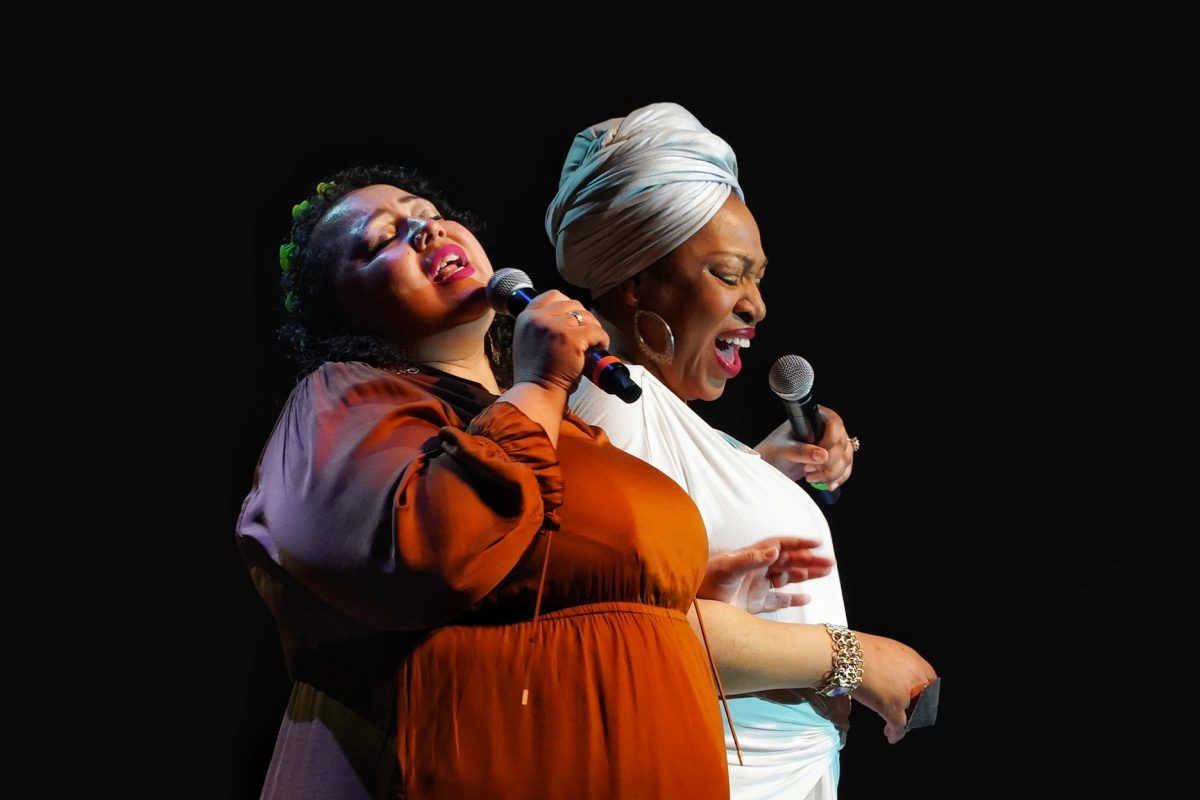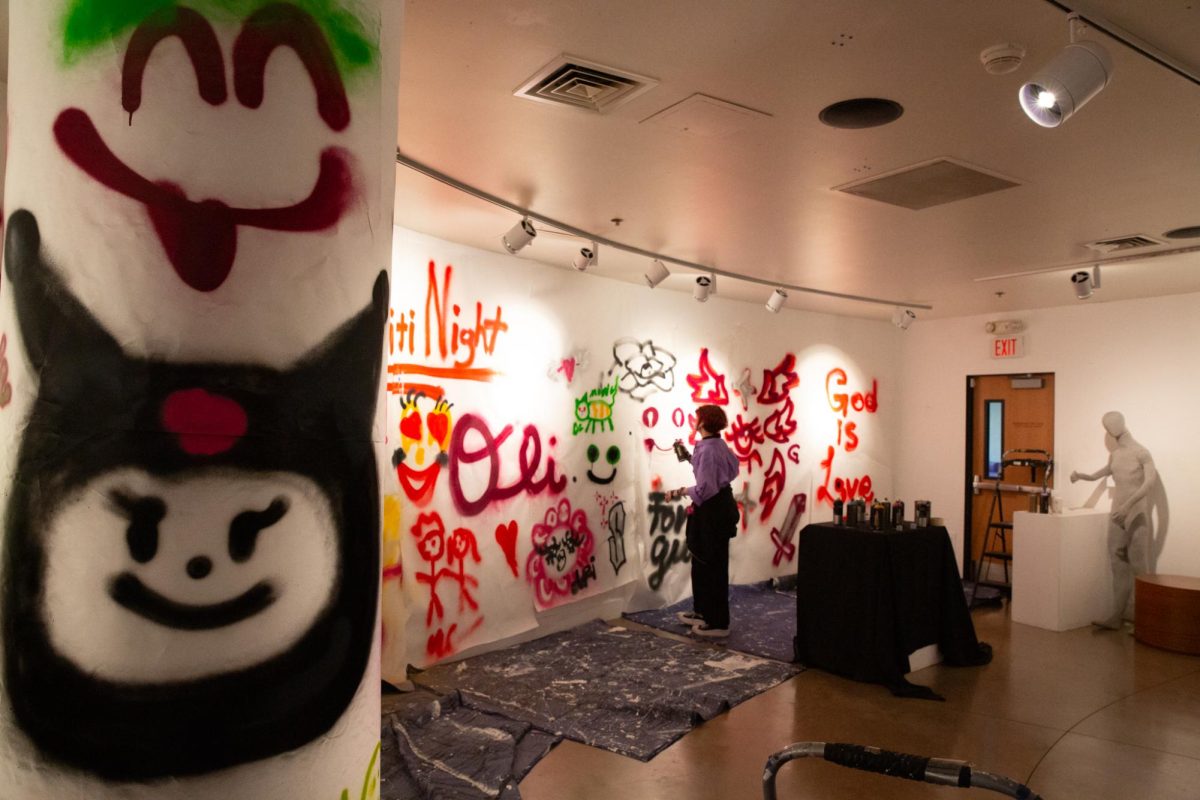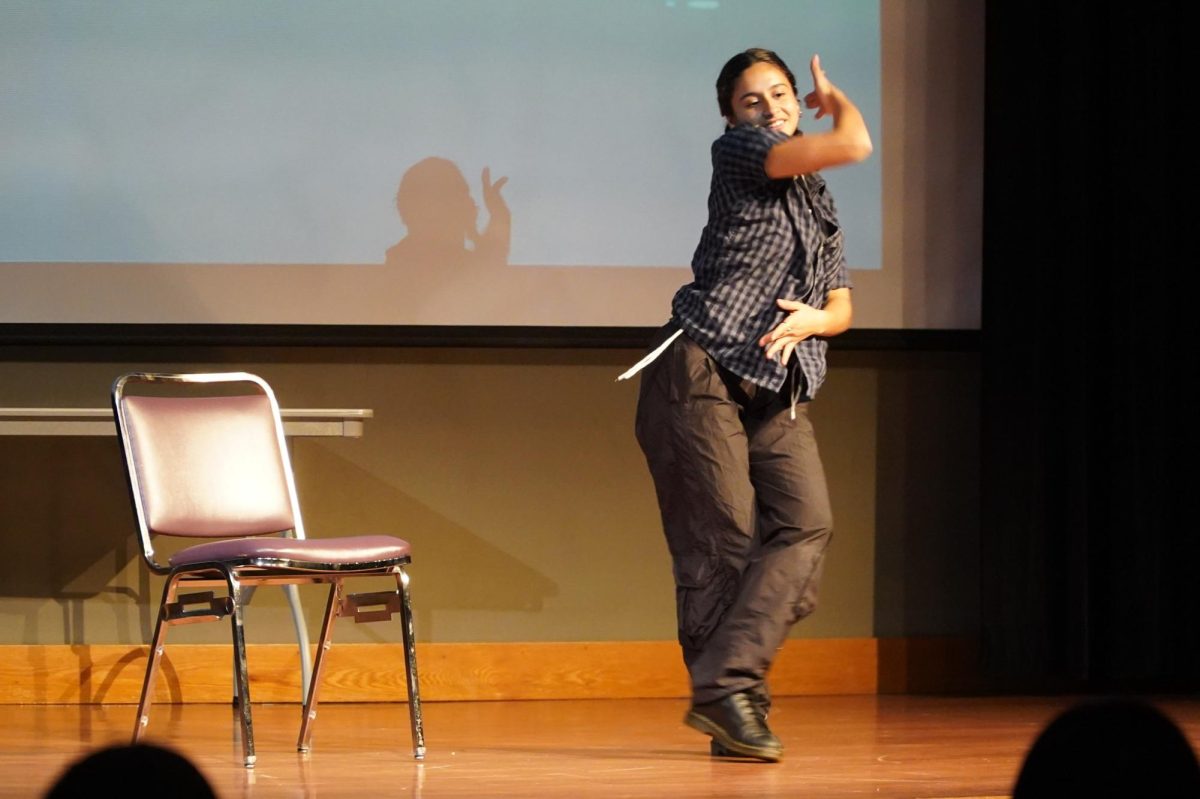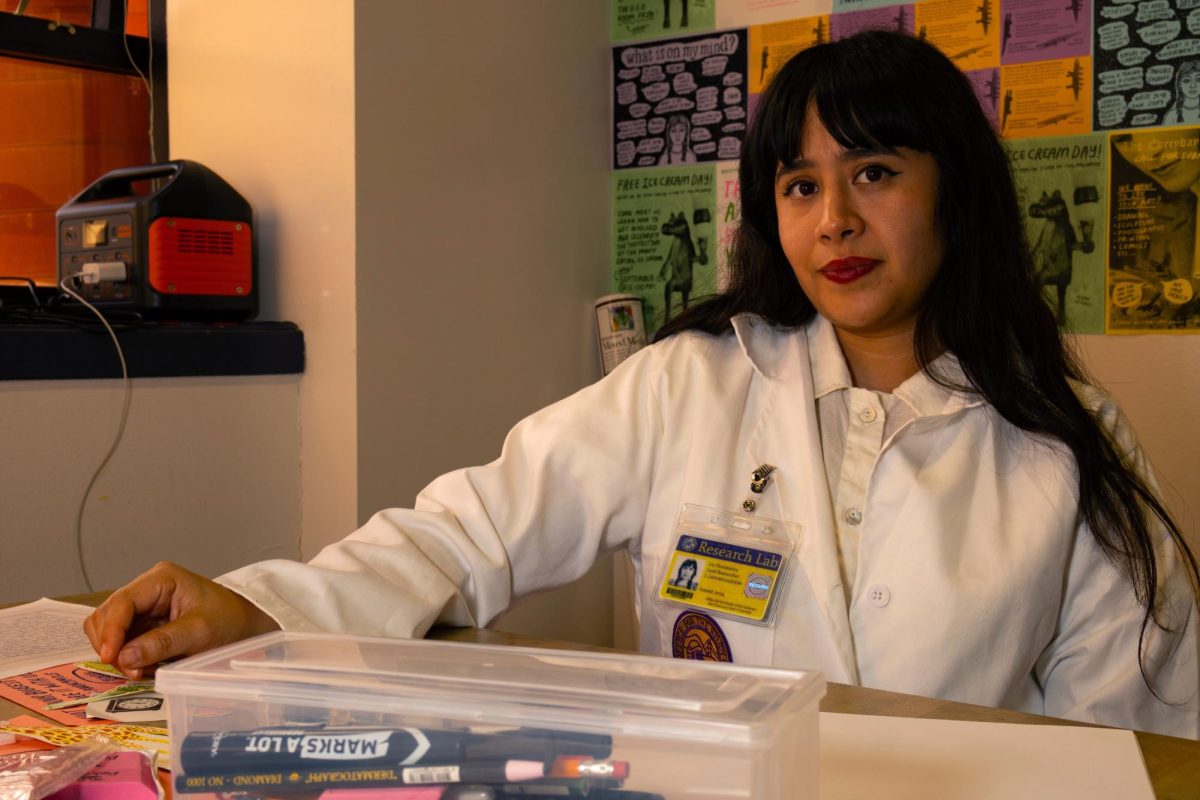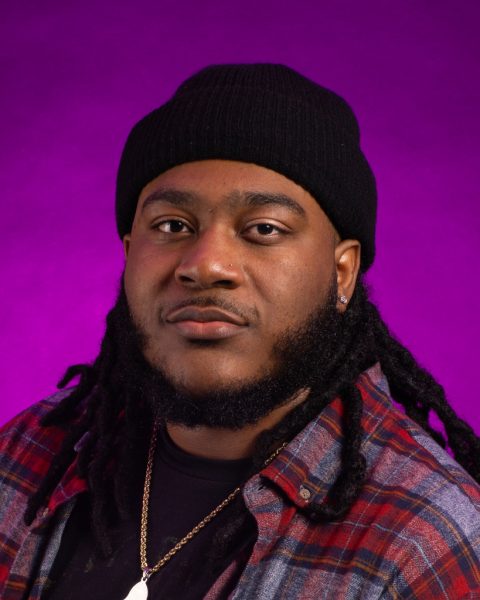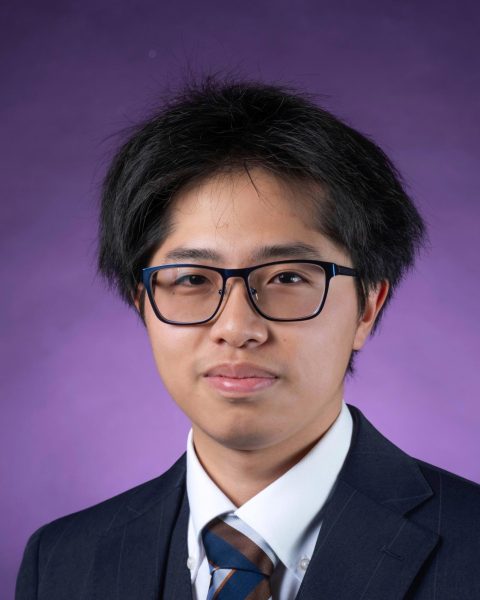The atmosphere was electric as attendees indulged in the soulful sounds of jazz, funk and gospel music that rang throughout McKenna Theatre on Thursday night as San Francisco State University hosted “The Sound of (Black) Music” presented by Electric Root.
This reimagined Afrofuturistic rendition of the 1965 musical “The Sound of Music,” which featured an all-white cast, aims to unite and heal Black communities through the power of music and the sound of Black music.
The Feb. 29 event was the group’s penultimate show as they wrapped up an 18-show nationwide tour.
Sana Colter, a digital marketing manager for Electric Root, explained how the tour has been an opportunity for people to appreciate and behold a unique experience of Black music.
“The tour has been interesting in the sense that a lot of people weren’t familiar with Afrofuturism before hearing about the show,” Colter said. “So this might be their first introduction — they’re not quite sure what that means or what that looks like.”
Aaron Benn, an events & community programs coordinator for SFSU’s LCA Live, witnessed the show at the Association of Performing Arts Professionals conference and wanted to bring the experience to SFSU.
“They’re doing some really great work in the community and have this concept of radical hospitality that really blew me away when I first saw it. So we knew we had to have them here,” Benn said. “We’re really lucky because yesterday, they’re at Stanford University, and tomorrow, they’re going to Sonoma State. And so we’re able to work out the logistics where it’s affordable and within our budget to do this and that’s how it came to life.”
Jono Gasparro, the co-founder of Electric Root and co-producer of “The Sound of (Black) Music,” was grateful to bring the event to California and specifically to inclusive spaces such as SFSU.
“A lot of times in shows or concerts or venues can still be segregated in 2024,” Gasparro said. “One of the purposes of this show is that it can be a conduit to just give a diverse, unified group of people — the messages that are embedded in Black music, which has healing, uplift, resilience, joy and love.”
Brianna Thomas, an artist and “The Sound of (Black) Music vocalist, described feeling inspired when she had the chance to enjoy and perform all the soul-stirring music she grew up listening to in large spaces without discrimination.
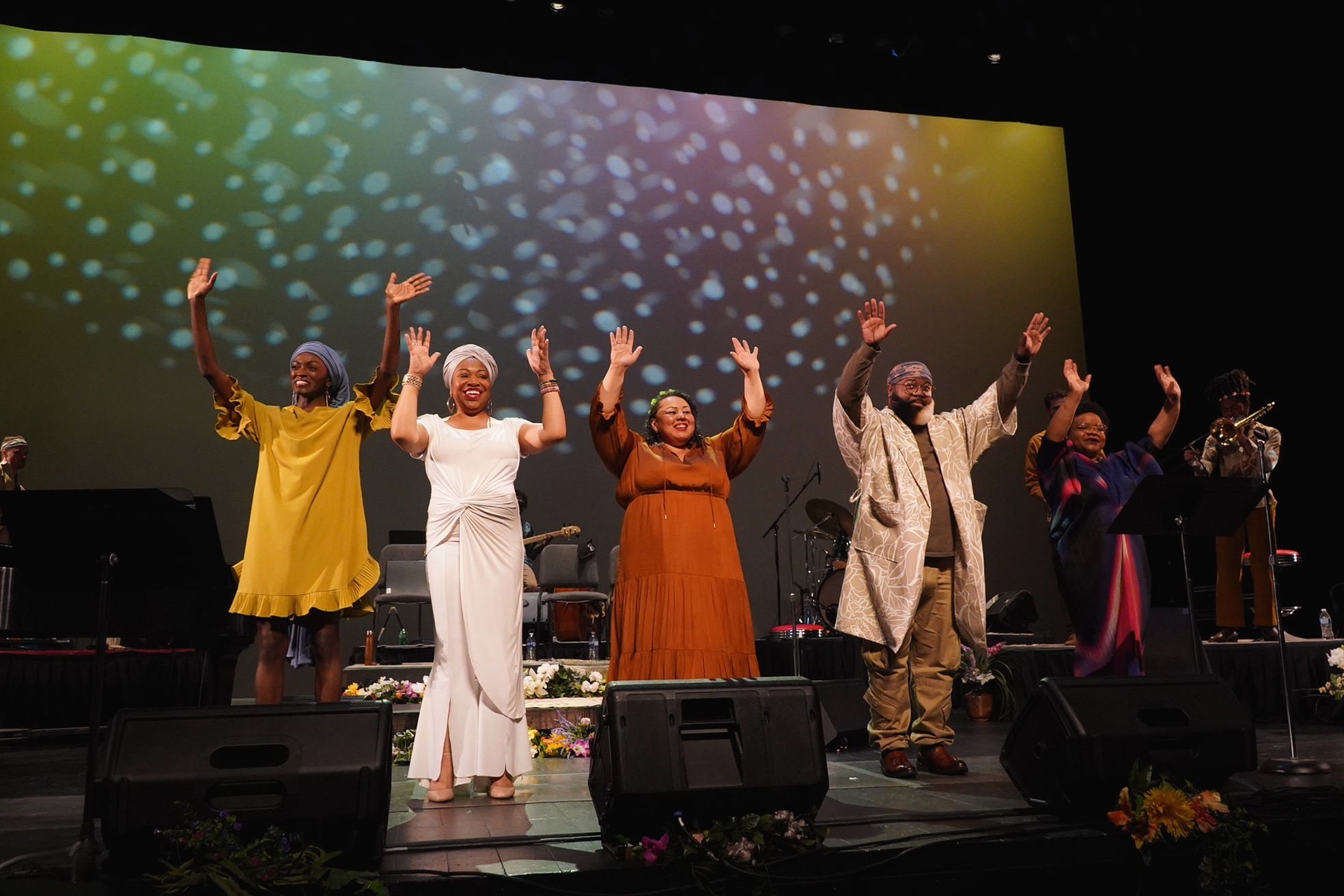
Her appreciation for live music was inspired by her late father who was also a vocalist and drummer during his time. Thomas believes people from all walks of life will be able to sample the feeling of live music during the show.
“There’s a vibration that happens in the air with live music,” Thomas said. “There’s something about live music that resonates in a way in us as we’re experiencing it because everyone is experiencing it together. Everybody comes into the room, with their own lives, with their own troubles, their own joys, and even though we’re in different places, we’re in the same place when we enjoy live music.”
Zhanna Reed, an artist and “The Sound of (Black) Music” vocalist, has a rich background in music that she says started “in the womb.” She grew up in a family filled with musicians, as her uncle Earl Roberson was a saxophonist for The Gap Band.
Reed vocalized that being a part of the show has been a whirlwind yet fun, and mentioned how she looks forward to her various interactions with audience members after the show.
“I feel like it’s different person to person,” Reed said. “People who aren’t Black, they come up and they’re lost for words, they don’t know what to say. They’re just like, ‘I just feel oh my gosh, the energy, and this was amazing.’ So I love hearing people’s responses.”
Inyiah Hillman, who’s majoring in Japanese, described how the performance led her to reminisce about the days of waking up to her grandmother’s jazz music on Sunday mornings.
“I feel like jazz is not very popular nowadays. If people are willing to listen, they can understand the love and the culture behind jazz music,” Hillman said. “It’s also very important to Black history, we’re a staple for jazz music. If people take the time to listen, it can’t really change pop music too.”
Ayssis De Los Reyes, a computer science student, beamed with joy as she expressed her love for the emotional synergy that all forms of music can evoke.
“It was magical,” De los Reyes said. “I loved all the singers, all the people who were doing the instruments. The sound is so amazing and I really enjoyed the solos when they showcased all the band members.”




